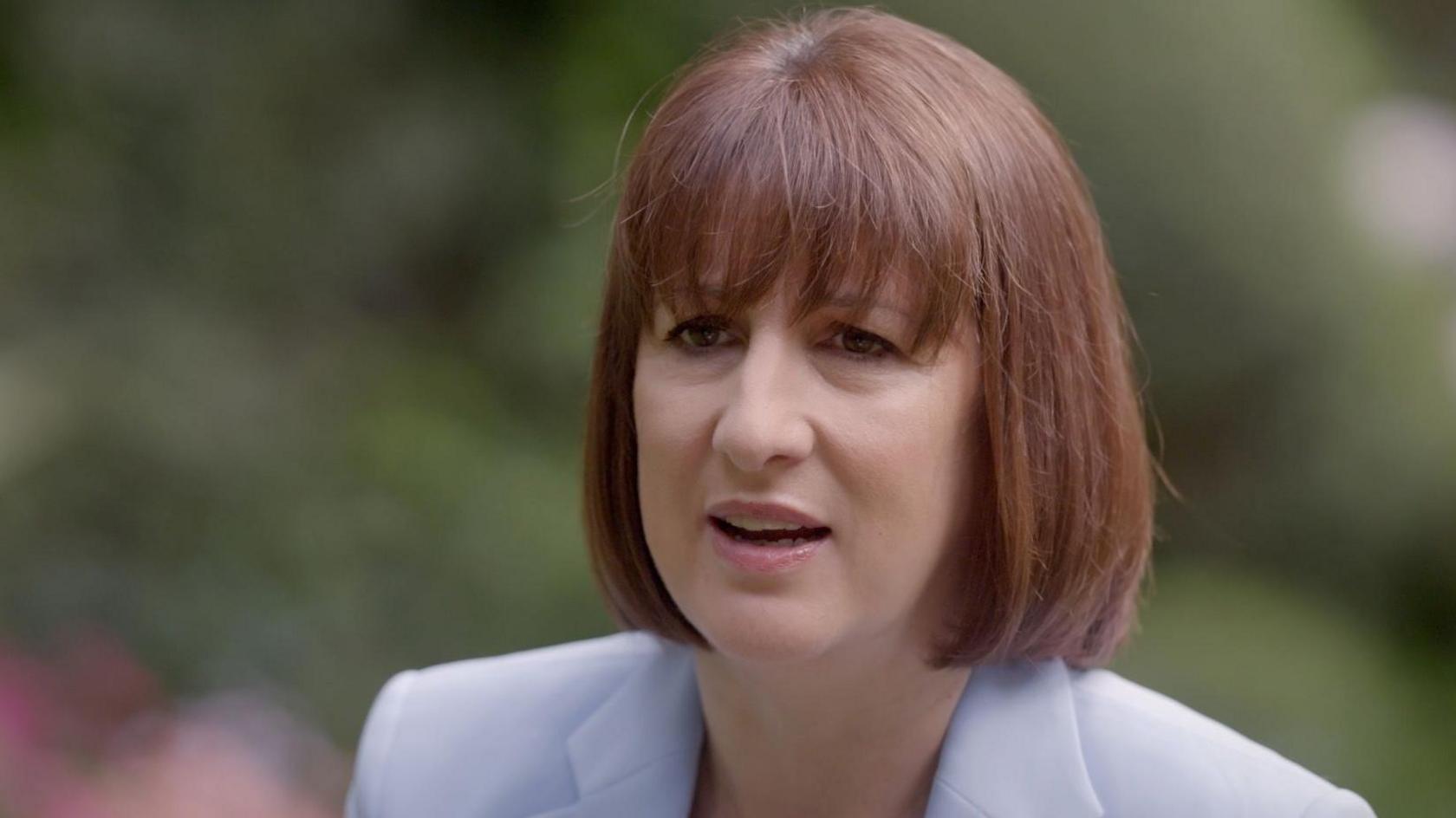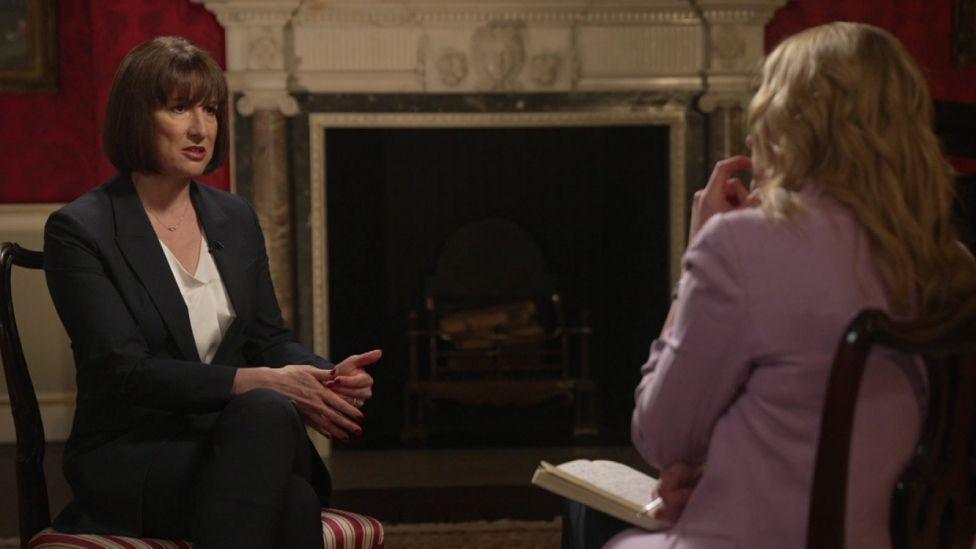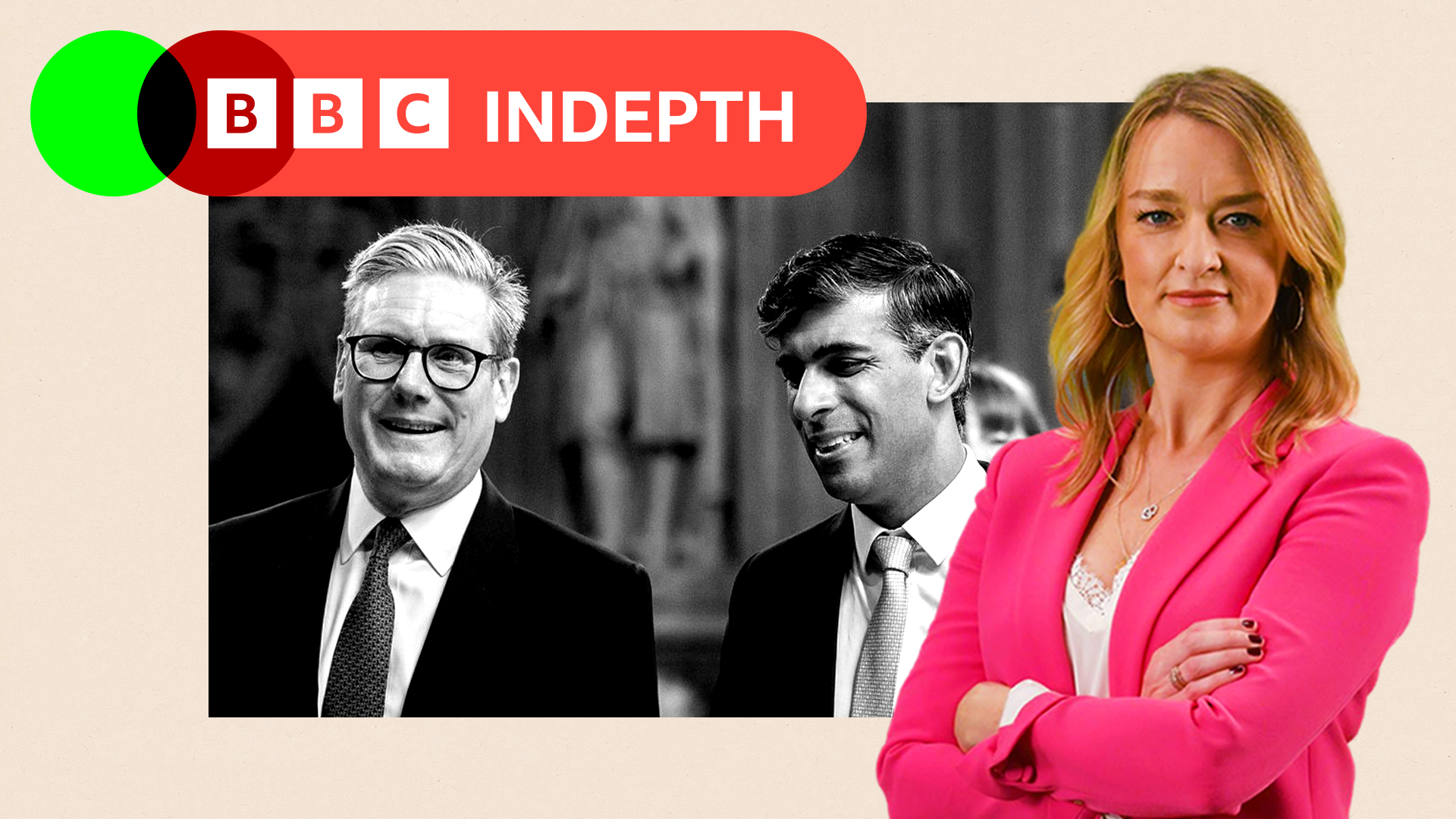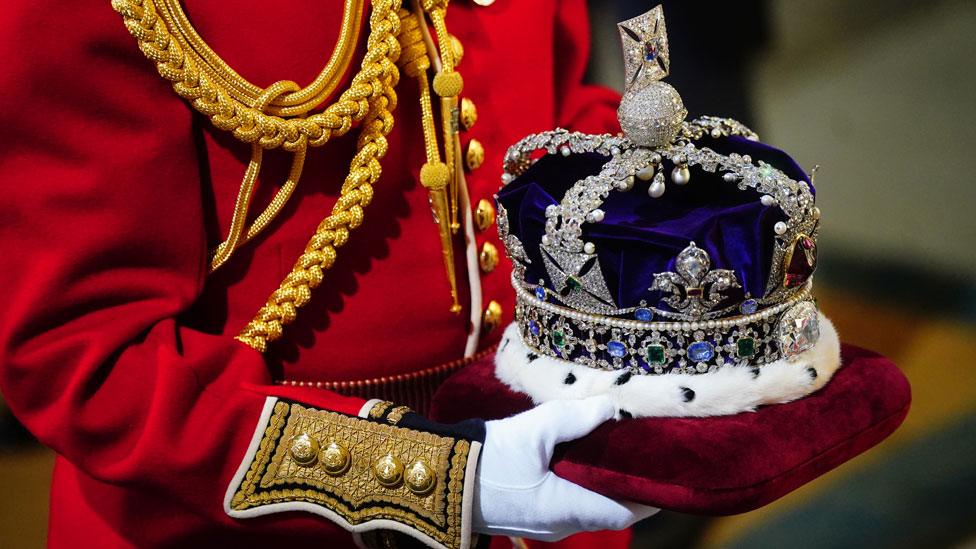Inside Labour's first fortnight in power
We've got to deliver for working people - David Lammy
- Published
The reality of power is felt by politicians in the grand ways, and the small.
The chancellor is in the middle of making a decision about the wages of millions of public sector workers, with officials hanging on her every word as she sweeps down the Treasury’s long corridors.
But Rachel Reeves is also trying to find time to unpack lorry loads of boxes – so far mainly being sorted out by her husband – as they go through the family nightmare of moving house. And grappling with the eternal question: where to put all the books?
David Lammy, the foreign secretary, has already acted as the UK’s chief diplomat in several countries, including having the toughest of conversations in Israel and taking a call in the middle of the night telling him that a former US president had been shot.
But like millions of dads, he has to contend with teasing from his kids, who warned him not to make them look daft by bursting into tears on telly when he got his new job (he didn’t in front of the cameras, although he did confess he had an "emotional moment" in the cabinet room with Sue Gray, Sir Keir Starmer’s chief of staff).

Wes Streeting is grappling with the NHS – both its short and long-term problems, with millions of patients stuck on waiting lists.
But, like others in the cabinet, he wonders why their new official government red folders are too big to fit into their government red boxes, and puts up with ribbing from his colleagues about his dad’s former Conservative allegiance.
Sir Keir has apparently created the "Wes’s dad" test to see if plans and policies would be approved by former Tory voters who backed Labour this time round.
The handover of government in the UK is an astonishing thing – rapid, brutal for those who get booted out, and remarkable for those who find themselves in power, in their dream jobs, suddenly blinking into the new reality and the new responsibilities of the jobs they craved for so long.
In the last fortnight, the first two weeks of the new Labour government, our cameras have been able to see three of the most senior new cabinet ministers up close in some of their first meetings and ministerial visits – or in a series of interviews with me.
At 20:00 BST on Monday, in a special Panorama programme, you’ll see how for all of them it is political, but so personal too.
Only a fortnight in, it’s impossible to have a sense of whether this government will be a success or a failure – or, more likely, where it will be able to succeed and where it might fail.
But it is plain that as a group, they have prepared just about as carefully as any opposition might have been able to, and they are in a rush to be able to show they can get things done.
It is also crystal clear in these first few weeks that they, like previous governments before them, are at the mercy of events they can’t control.
There’s been the attempted assassination of Donald Trump, alongside several raging conflicts across the globe that are hard to predict.
It’s also obvious these cabinet ministers believe in and want to expand the power of the state – a fact maybe under-discussed during the election campaign, which had such a focus on tax and spend.
Whether it’s rail nationalisation, more planning rules being set in Whitehall or the new state energy company, despite its promises of devolution, the new Labour government will extend its reach.
And you can clearly see how hard they are trying to set the public’s expectations about just how challenging their task is – ministers are falling over themselves to warn you of how broken the country is.
Evidently, we’re seeing an attempt – even beyond the election – to create a lasting impression that the Tories wrecked the country. "It’s worse than we thought" and the Tories "ran away" are messages you might get used to hearing. The 2029 general election might be miles away, but be in no doubt: the long campaign is already here.
But what really struck me during my conversations with the three new key cabinet ministers is that they all, without prompting, connect their chances of prospering with the fate of our whole political system.
If they don’t do what they promise, Ms Reeves told me it will be seen as an "institutional failure" for all politicians, proving to some voters the suspicion already present that "all politicians are liars".
Both Mr Lammy and Mr Streeting - who nearly lost his seat - suggest, if they get it wrong, the populists are on their way.
Labour got a fright at the election, when some candidates were booted out, partly due to aggressive campaigning, often over the issue of Gaza.
Nigel Farage’s party, Reform UK, appealed to former Labour voters, but largely Conservatives, too.
They are only just getting going, but the new government seems to believe it’s not just the fate of their party, but the public’s faith in the political system, that is at stake.
Labour in Power: Inside the New Government will be broadcast on BBC One at 20:00 tonight.
Related topics
- Published21 July 2024

- Published20 July 2024

- Published17 July 2024
